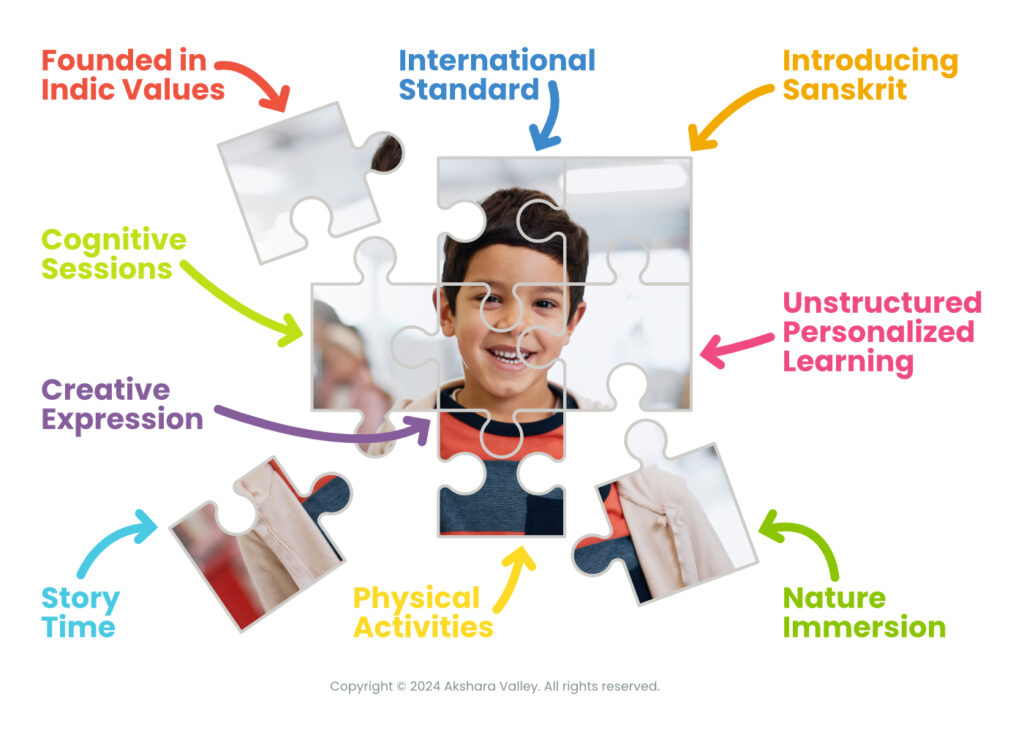
Our Sadvidya Preschool Curriculum aligns with Panchakoshiya Vikas or development of the five koshas namely: Annamaya, Pranamaya, Manomaya, Vijnanamaya and Anandamaya. The pedagogy and content both ensure a balanced growth of the koshas enabling your child to grow to their full potential.
The Indic approach to education was to enable everyone to see the divine principle that connects everything around us: animals, plants, fellow human beings, and many other things. We thus perceive ourselves to be part of the environment and the environment to be part of us. That way we act with awareness and harmony.
The Cambridge School Curriculum is an internationally recognized education program developed by Cambridge Assessment International Education (CAIE), a division of the University of Cambridge. It is designed to provide a comprehensive and balanced education for school students.
The Cambridge Early Years Curriculum encourages students to develop an understanding of different cultures, perspectives, and global issues, preparing your child to become a responsible global citizen.
Sanskrit is the root of Hindi and many other Indo-European languages. It stands out above all other languages for its beauty of sound, precision in pronunciation, and thoroughness in every aspect of its structure. The sounds have a particular place in the mouth, nose and throat and will never change. This is why in Sanskrit the letters are called the ‘Indestructibles’ (Aksharáni).
The phonetics, grammar rules, and script of Sanskrit make it easier for your child to learn other languages. Also, chanting metrical Sanskrit verses (Kaṇṭapāṭha) and committing them to memory have been shown to have a positive impact on brain function and cognitive ability.
Structured activities designed to stimulate and improve various cognitive processes, including thinking, memory, attention, problem-solving, decision-making, and other higher-order cognitive functions.
A student-centered, self-directed and open-ended learning approach that prioritizes individual student needs, strengths, and interests; rather than a one-size-fits-all approach. It allows your child to explore topics deeply, connect learning to real-world contexts, and develop a sense of autonomy and responsibility.
Unstructured learning fosters collaboration and communication skills. Students engage in peer-to-peer interactions, share ideas, and collaborate on projects, learning from one another and developing important social skills.
We integrate ecological aspects from the Panchabhutas to the Ayurvedic concept of Dinacharya or farming. Knowledge of flora and fauna, growing food, and self-reliance are all introduced through this.
Your child gets to interact with a variety of animals (including tortoises, rabbits, pongunuru cows) and birds. This not only teaches them about different species but also instils empathy and compassion for all living beings.
We blend age-appropriate yogic practices, with exercises for improved motor skills and all-round physical development. This helps your child develop a positive attitude towards exercise and lays the foundation for healthy, active lives.